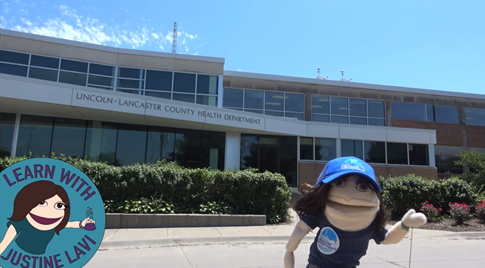
Finding new ways to inject creativity into education has been a persistent challenge in academia. It’s been known for some time that students learn in different ways, and while textbooks and lectures may be effective for some, others absorb information better through more nontraditional means. Subjects often deemed as “drier” than others may benefit from eccentric approaches to teaching to engage students.
A recent project funded by the Center for Transformative Teaching put this concept into action during the spring and fall 2020 semesters in a selection of online entomology courses. Justine LaViolette, who graduated with a master’s in entomology in December 2020, created a series of entertaining educational videos meant to enhance the way students learned entomological concepts. The videos specifically targeted students who may have little to no knowledge of the material beforehand and may view the material as uninteresting.
Using lyric and song parodies, humor, interviews and handmade puppetry, the videos personalize insects in a way that encourages people to respect and appreciate the creatures, be they pests or beneficial, and understand their roles in the ecosystem. Topics included mosquitoes, insect-vectored diseases, ticks, honeybee reproduction and physiology of molting. LaViolette shared some of the videos on her Learn with Justine LaVi Facebook page.
Erin Bauer, academic adviser for students in the online master’s in entomology program and lecturer, supervised the project.
“Science is not always easy to tell people about and so any way that you can make it more understandable, as well as more fun and entertaining, is the reasoning behind these videos,” Bauer said. “Instead of just watching lectures, you get some variety, and it makes them more accessible.”
The analysis of both semesters of courses showed positive results. Through Canvas, students in the course were given pre- and post-course surveys about the material, and the results were compiled and formatted by statistics doctoral student Kelsey Karnik. Based on the results, the videos were found to be effective in increasing knowledge about entomological topics. In some cases, the percentage of change was more drastic than in others, but it was apparent that the videos, no matter their format, effectively taught the content they intended.
Students also had the opportunity to leave feedback through open-ended questions on the surveys. The overall sentiment showed students enjoyed the content and appreciated the creative approach. Some students noted that the song parodies in particular stuck with them. Not all students found the videos to be useful or preferable, but the results show an overall positive reception to the content.
LaViolette said the inspiration for the project stemmed from her passion for science communication.
“There are a lot of things that are issues with science as it is right now, from availability to how it’s presented,” she said. “Science communication is trying to take which science is hot right now and trying to make it into easy-to-understand information, without too much jargon. Science is fun, and we shouldn’t keep it dry. We should try to spice it up and have fun with it. Adults can have fun with science, too.”
For more information on the project, including more details on the post-course surveys, click here. The project was made possible through a grant from the Center for Transformative Teaching. To learn about the grants or to apply, click here.







